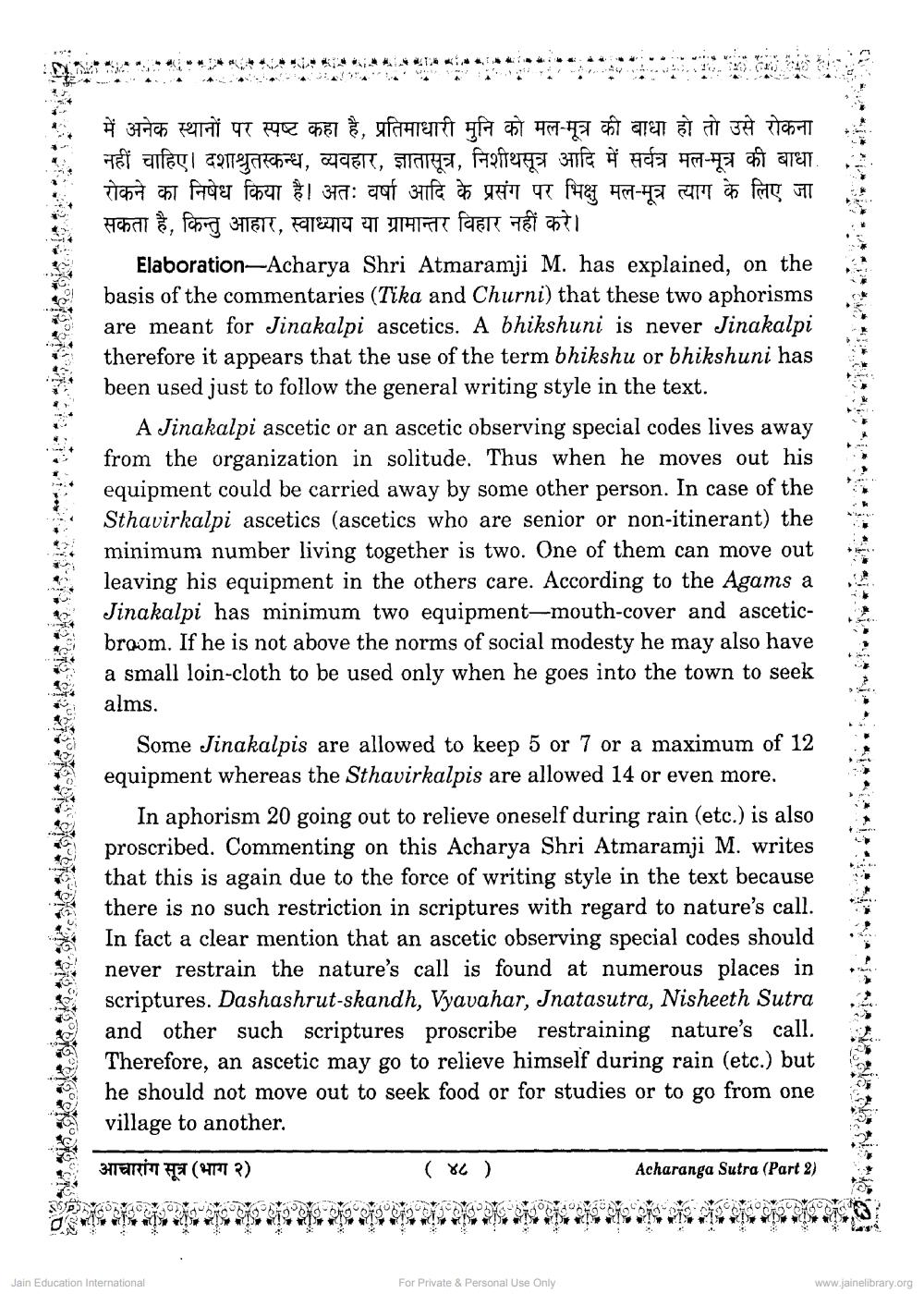________________
में अनेक स्थानों पर स्पष्ट कहा है, प्रतिमाधारी मुनि को मल-मूत्र की बाधा हो तो उसे रोकना नहीं चाहिए। दशाश्रुतस्कन्ध, व्यवहार, ज्ञातासूत्र, निशीथसूत्र आदि में सर्वत्र मल-मूत्र की बाधा. रोकने का निषेध किया है। अतः वर्षा आदि के प्रसंग पर भिक्षु मल-मूत्र त्याग के लिए जा सकता है, किन्तु आहार, स्वाध्याय या ग्रामान्तर विहार नहीं करे ।
Elaboration-Acharya Shri Atmaramji M. has explained, on the basis of the commentaries (Tika and Churni) that these two aphorisms are meant for Jinakalpi ascetics. A bhikshuni is never Jinakalpi therefore it appears that the use of the term bhikshu or bhikshuni has been used just to follow the general writing style in the text.
A Jinakalpi ascetic or an ascetic observing special codes lives away from the organization in solitude. Thus when he moves out his equipment could be carried away by some other person. In case of the Sthavirkalpi ascetics (ascetics who are senior or non-itinerant) the minimum number living together is two. One of them can move out leaving his equipment in the others care. According to the Agams a Jinakalpi has minimum two equipment-mouth-cover and asceticbroom. If he is not above the norms of social modesty he may also have a small loin-cloth to be used only when he goes into the town to seek alms.
Some Jinakalpis are allowed to keep 5 or 7 or a maximum of 12 equipment whereas the Sthavirkalpis are allowed 14 or even more.
In aphorism 20 going out to relieve oneself during rain (etc.) is also proscribed. Commenting on this Acharya Shri Atmaramji M. writes that this is again due to the force of writing style in the text because there is no such restriction in scriptures with regard to nature's call. In fact a clear mention that an ascetic observing special codes should never restrain the nature's call is found at numerous places in scriptures. Dashashrut-skandh, Vyavahar, Jnatasutra, Nisheeth Sutra and other such scriptures proscribe restraining nature's call. Therefore, an ascetic may go to relieve himself during rain (etc.) but he should not move out to seek food or for studies or to go from one village to another.
आचारांग सूत्र (भाग २)
Jain Education International
( ४८ )
For Private Personal Use Only
Acharanga Sutra (Part 2)
www.jainelibrary.org




